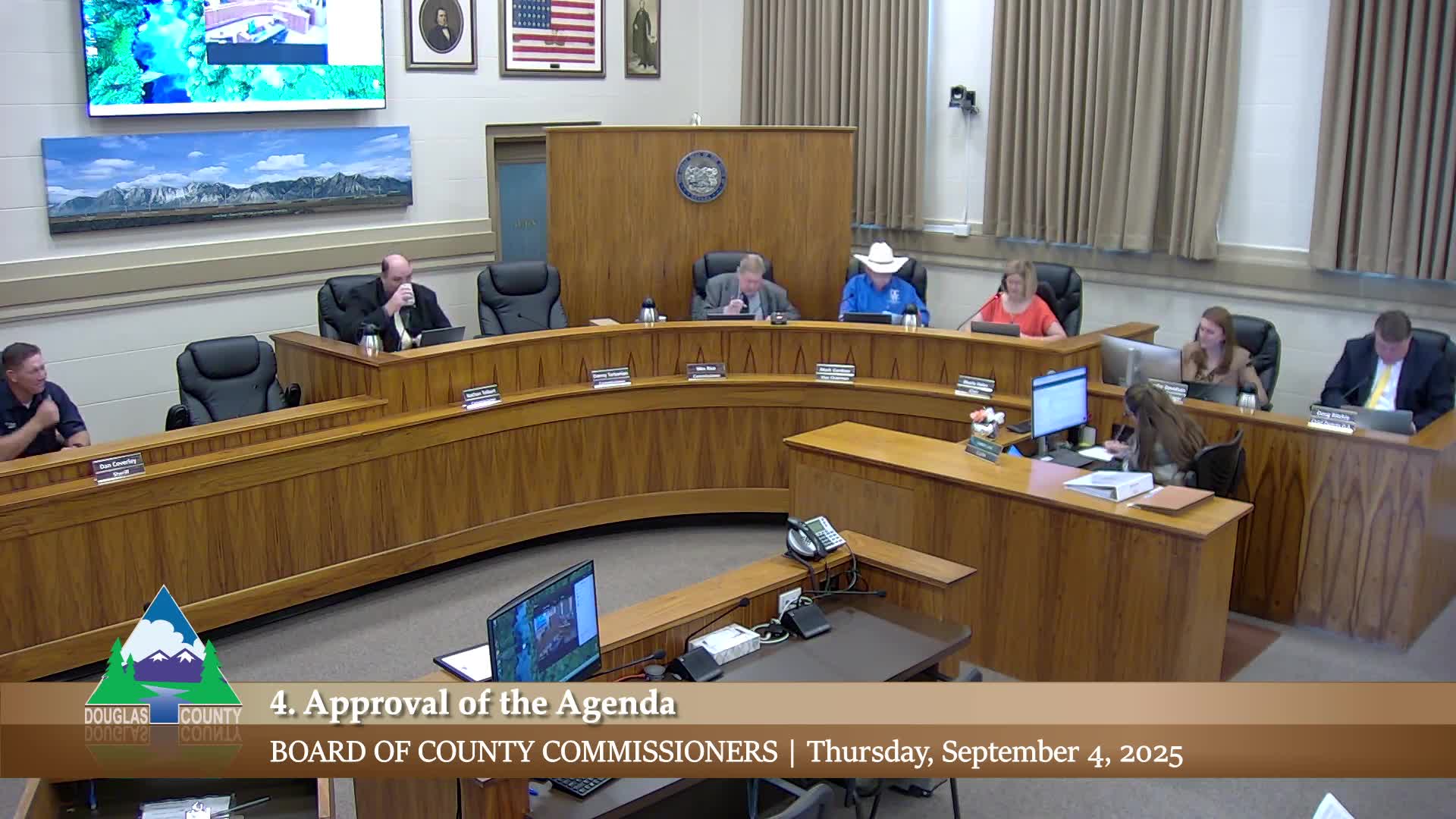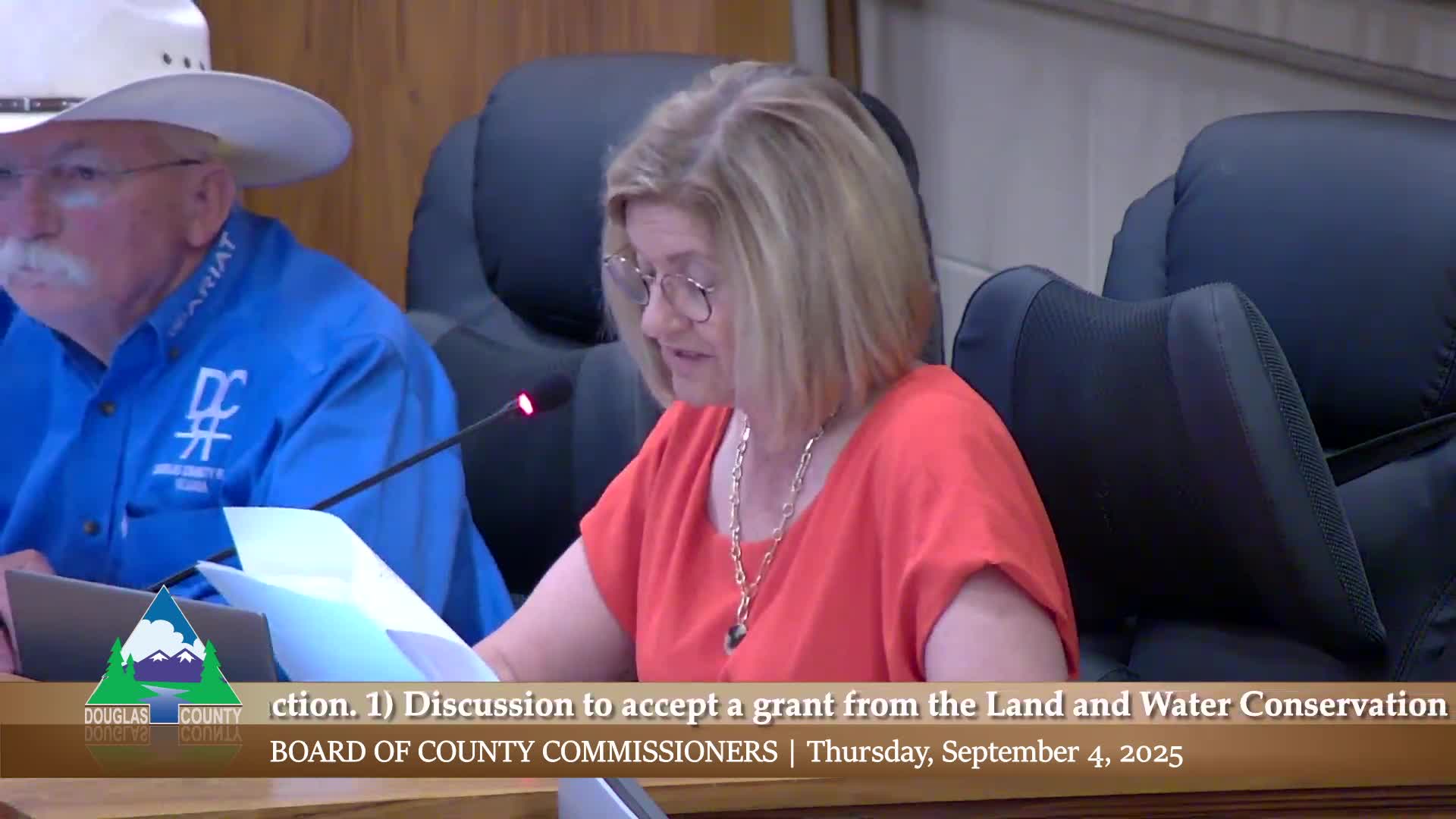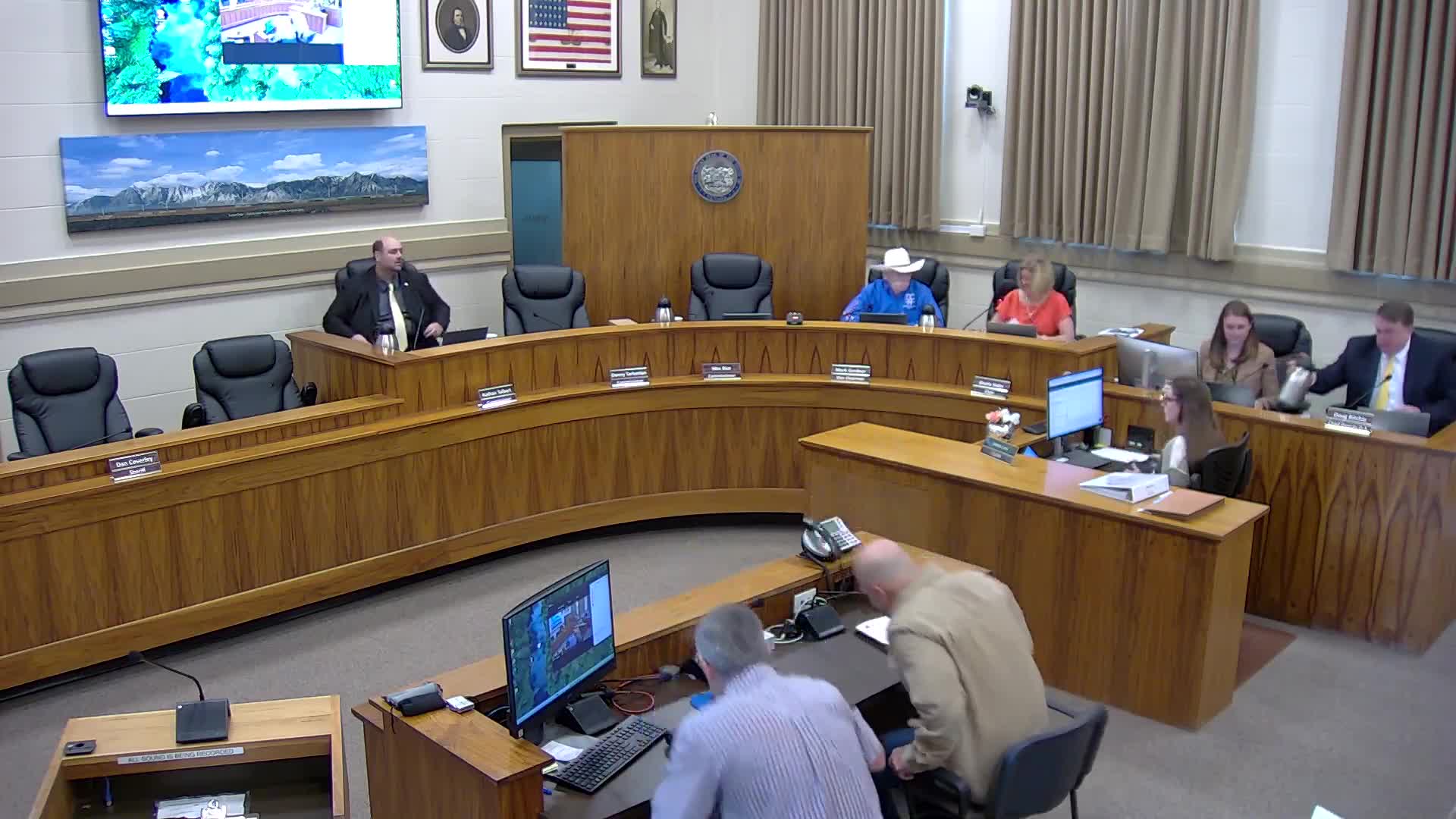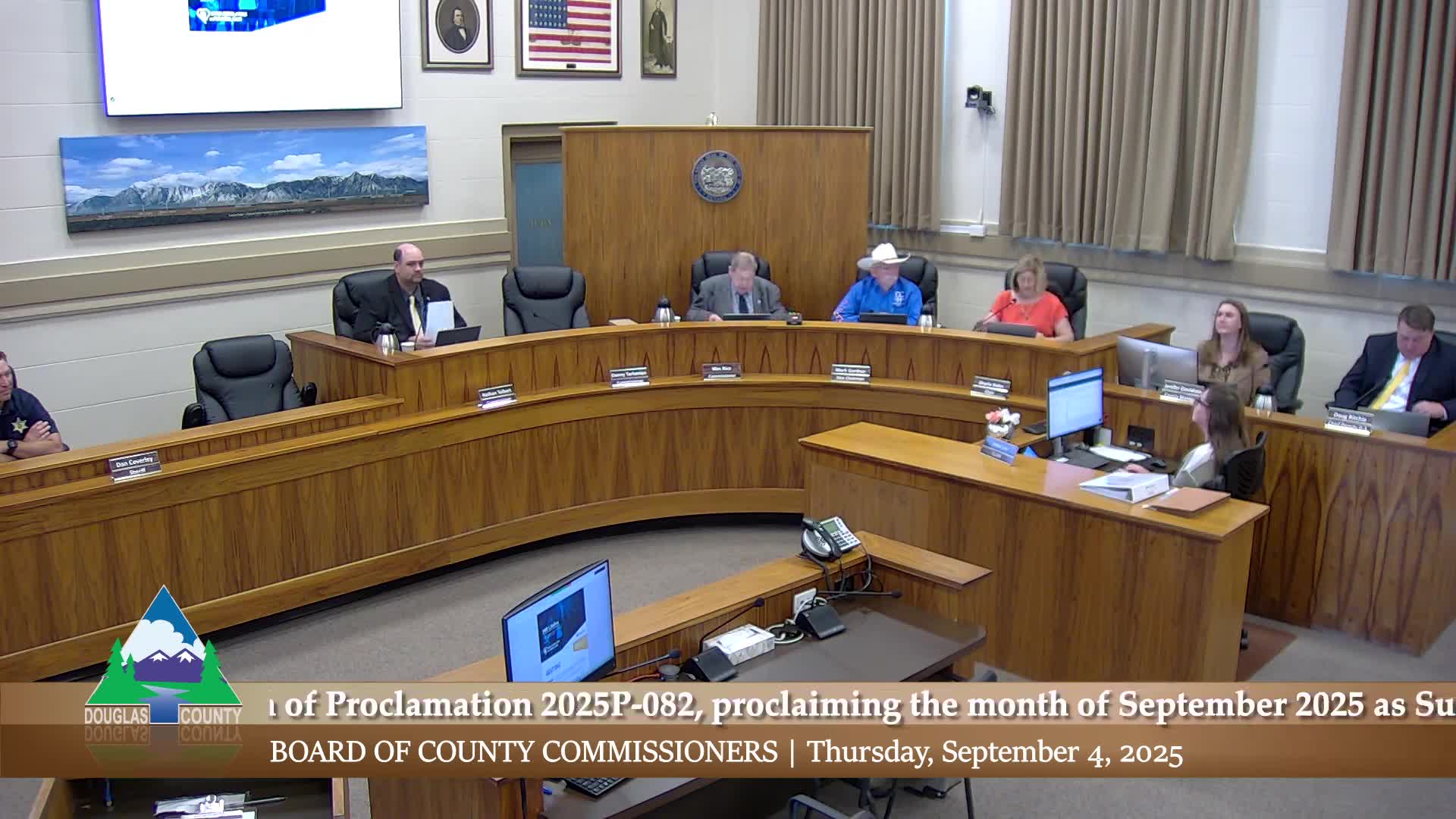Article not found
This article is no longer available. But don't worry—we've gathered other articles that discuss the same topic.

At a glance: Douglas County commissioners' votes — liquor license, minutes, ordinance and appointments

Board approves Land and Water Conservation Fund grant, $521,890 playground contract for Studwick Park

Douglas County approves $4.32 million contract to replace Mountain View water tank

